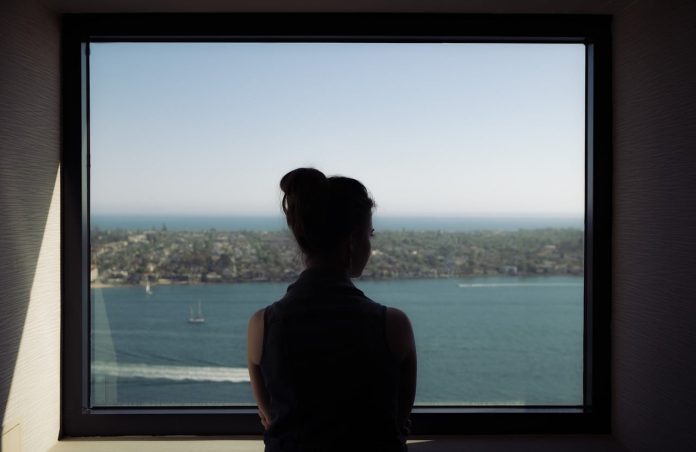CW: This essay discusses suicide. If you or someone you know needs immediate help, please call 911. You can also call the National Suicide Prevention Lifeline at: 1-800-273-TALK (8255) or contact the Crisis Text Line by texting CONNECT to 74174. The world needs you.
By Jen Soong
In a cramped motel room, I stared silently into the dark, lying still as a corpse. Until recently, I had been studying at a prestigious university, my future beckoning brightly. My father kept vigil over me, still his little girl. The distance separating us — a few feet, at most — felt like an unbridgeable gulf.
I promise, I lied softly, knowing those were the words he needed to hear. Lying proved to be easier than living. No, I’m not having any thoughts of harming myself. I lied to the clinician to gain my release from the locked hospital ward after my dad arrived. Yes, I will seek help if I have those thoughts again.
The next day, I repeated those lies to a disinterested psychiatrist in a drab beige office, tuning out his line of inquiry about my ethnicity. A verbal no-harm agreement. Like a security blanket, it generally works only if the child tucked underneath believes it. Let’s play pretend. I knew my lines to deliver, even if they weren’t completely honest.
I took too many sleeping pills. Truth is a slippery slope. I just wanted to sleep. If I never spoke the words out loud—that I was tired of living—was I technically lying? If the bitter truth, a suicide attempt, is never examined in the light of day, then it can stay buried in the past, like the ghosts of my ancestors.
We don’t talk about these things.
Earlier that day, my dad questioned why I had run away when I was a kid, a time I could still cry out for help. He was desperate to connect the dots and reach a logical conclusion. My father, armed with a PhD in electrical engineering, will read a manual from beginning to end before attempting to fiddle with anything.
Daughters don’t come with manuals. My dad was my protector; once he scolded the boy who crashed a bike that caused my skinned knees. Dirt and tears, these could be wiped away with his pocket handkerchief. Protecting me from myself was not a formula he could solve.
Depression runs in my family. My dad’s mother committed suicide when she was 59. The last time he saw her alive was 1956, before he boarded a freight ship from Taiwan to study in America. Thirteen years later, he flew back to his homeland for her funeral. After the service, he learned she killed herself. His sister had discovered her body in the bathroom along with a suicide note.
We don’t talk about these things.
Late at night during family gatherings when I was still young, adults whispered in hushed tones in the kitchen, usually with fruit — likely oranges or Asian pears — peels and peanut shells littered on paper plates at the table. The secrets swirled in the air, sucking the oxygen out of the room. When I entered, my body immediately tensed, torn between wanting to know and needing to escape.
Often, I would descend into the basement to play mah-jong with my cousins, shuffling tiles and competing for red and blue poker chips, never revealing what lay behind our tile walls. It was easier to hide our hurts, mask our missteps, swallow our pride. If we never questioned our elders, then perhaps we would take home the greatest jackpot.
This unwritten bargain will be familiar to immigrant children, whispered softly like a mother’s lullaby. We will make unimaginable sacrifices to raise you in America, land of riches, and you will play the role of the dutiful daughter, living a life of immeasurable happiness.
Lying in bed that night, I couldn’t find the words to explain to my dad how lost I felt. Depression had stolen my voice, betrayed my mind and filled my soul with an insidious darkness. No map could lead me out of this bleak, nameless place. Instead, I lay in wait, knowing my dad, my hero, would sacrifice his life to light the way home.
Jen Soong is a writer and brand strategist with more than two decades of media and marketing experience. The daughter of Chinese immigrants, she grew up in a small town in New Jersey, lived in NYC, Boston and London before moving to Atlanta in 2005. A graduate of Cornell University, Jen is working on a memoir about one woman’s struggle to understand her depression and her family’s history of suicide.


Much love to you ~
Powerful